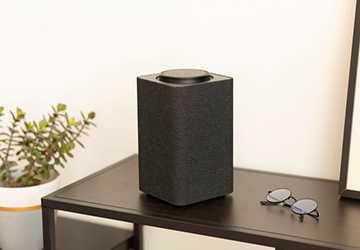Hey there, music lover! If you're like me, you spend much of your time jamming to your favorite tunes through your speakers. But have you ever wondered how to get the absolute best sound quality from your speakers? Well, you're in luck because we're about to dive into the nitty-gritty of speaker setup and audio optimization without all that confusing tech talk. Let's make your music sound as awesome as possible.

Choose the Right Location
First things first, where you put your speakers matters—a lot. Think about it like this: speakers are like the voice of your music, and they need the right stage to shine. Avoid Corners: Placing your speakers in the corners of a room might seem like a space-saving idea, but it can muddy the sound. Sound waves can bounce around and create echoes. Needs improvement. Centered and at Ear Level: Try to place your speakers at ear level while sitting in your favorite listening spot. Make sure they're facing you and evenly spaced apart. This will create a focused and balanced sound.
Speaker Positioning
Okay, you've found a good spot for your speakers, but now it's time to fine-tune their position. Minor adjustments can make a big difference. Toe-In: Consider angling them slightly towards your listening position if using a bookshelf or floor-standing speakers. This helps to create a more precise soundstage. Speaker Isolation: Placing your speakers on dedicated stands or isolation pads can minimize vibrations and enhance sound clarity. It's a small investment that can pay off big time.
Room Acoustics
Your room plays a massive role in how your speaker’s sound. Even the best speakers can't work miracles if your space has lousy acoustics. Here's how to tackle it: Soft Furnishings: Carpets, curtains, and furniture help absorb sound and reduce echo. They can be your best friend in making your room sound better. Acoustic Panels: If you're serious about it, add some acoustic panels to your walls. They come in various styles and colors, so you can even make them look cool.
Optimize Speaker Wiring
Now, let's talk about the wiring that connects your speakers to your music source. Quality Cables: Invest in good quality cables. They don't need to be super fancy or expensive but avoid the cheapest ones you can find. Reliable connections can make a noticeable difference. Keep it Neat: Try to keep your cables tidy and avoid tangling. Neat cables not only look better but can help minimize interference.
Balance the Sound
Balancing the sound is essential to get the most out of your speakers. Here's how to do it without all the technical jargon: Bass and Treble Controls: Most speakers have knobs for bass and treble. Experiment with these controls to find the balance that sounds best to you—more bass for thumping beats, more treble for crisp vocals. Volume Level: Ensure your left and right speakers are at the same level. This ensures a balanced soundstage. Test Tracks: Use a few test tracks you know well to fine-tune your sound settings. This could be a song with a bit of everything – bass, vocals, and instruments.
Optimize Your Source
Your music source, whether it's a turntable, CD player, or streaming device, also affects sound quality. High-Quality Files: If you're playing digital music, go for high-quality formats like FLAC or WAV. They sound better than heavily compressed formats. Speaker Placement for Turntables: If you're a vinyl enthusiast, ensure your turntable is on a stable surface and isolated from vibrations.

Speaker Positioning for Home Theater
If you're using your speakers for a home theatre setup, there are a few additional things to keep in mind: Center Speaker: In a 5.1 or 7.1 surround sound setup, the center speaker plays a crucial role in dialogue clarity. Place it front and center, ideally at ear level. Surround Speakers: These speakers create a more immersive experience. Position them to the sides and slightly behind your listening area. Subwoofer: The subwoofer is responsible for those deep, rumbling bass notes. It's often best placed in a corner to maximize low-frequency effects.
Speaker Maintenance
Remember to give your speakers some love. Regular maintenance can ensure they keep sounding their best. Cleaning: Dust and dirt can affect sound quality. Gently clean the speaker cones and grills with a soft brush or cloth. Check for Loose Connections: Occasionally, make sure all the connections are snug and secure.
Avoid Distractions
You'll want to create an optimal listening environment to get the best sound quality from your speakers. This means minimizing distractions. Background Noise: Close doors and windows and turn off noisy appliances. A quiet room lets your music shine. Smartphone Interruptions: Set your phone to silent mode or use the "Do Not Disturb" feature to avoid interruptions during listening sessions.
Experiment and Trust Your Ears
Finally, remember that everyone's taste in sound is different. The key to getting the best sound quality from your speakers is to experiment, trust your ears, and find the best setup. There's no one-size-fits-all solution, so have fun tinkering and finding your ideal sound.
Conclusion
To wrap it up, remember that achieving the best sound quality from your speakers is all about enhancing your personal listening experience. It's not about chasing perfection but about savoring the beauty of music. So, don't be afraid to experiment, trust your ears, and adapt these tips to suit your unique preferences. The journey to better sound quality is delightful; as you fine-tune your setup and immerse yourself in your favorite tunes, you'll discover new depths and layers in your music that you might not have noticed. Happy listening, and may your speakers continue to be the faithful conduits of your musical joy!